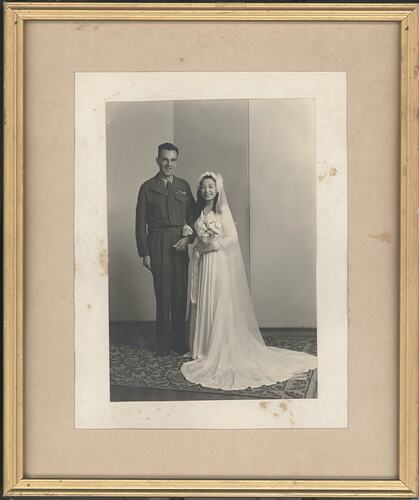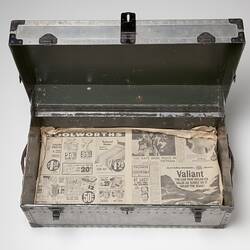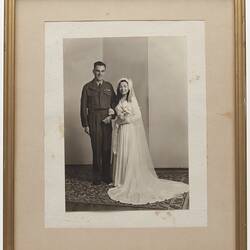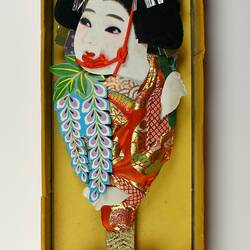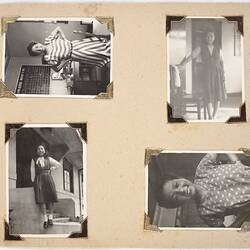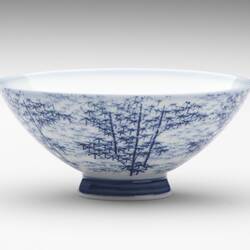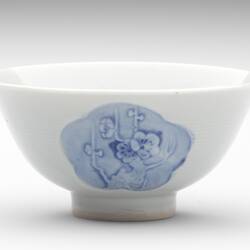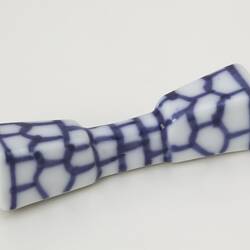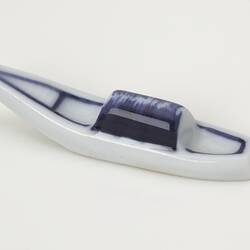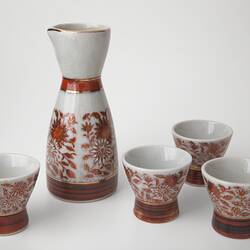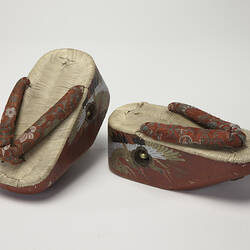Machiko Mizuta migrated to Australia in 1952. She was one of many Japanese women known as war brides - women who married Australian soldiers in occupied Japan after the War and migrated to Australia in the 1950s. Machiko met Douglas Bryce (born 2 April 1914) soon after World War II had ended. Around 1948 Douglas was posted as an engineer with the Royal Australian Engineers to an occupation camp in Kure, Japan, where Machiko was working in the engineer's office. Kure City, in Hiroshima Prefecture, was where the Headquarters of the British Commonwealth Occupation Forces were established following Japan's surrender. Kure City was historically an important Japanese military port and was also Japan's premier naval shipbuilding dock.
Douglas was several years older than Machiko and as with many other war brides, her family disapproved of her marriage to a 'foreigner' and her relocation overseas. Along with many other war brides, the Australian YWCA and the Australian Army Education Services taught her how to cook, dress and understand table etiquette in preparation for life in Australian society, so she would feel confident to manage the unknown language and customs to greet her. Machiko and Douglas married in Japan, but she had to come to Australia separately in 1952. They met in Sydney when her ship docked, and from there went by train to Albury where they stayed with Douglas' friends. The couple then moved to Bendigo in central Victoria where they stayed with other friends and were made to feel very welcome. Machiko was captivated by the landscape and the local community welcomed her with flowers. This experience contrasted with their later stay in Caulfield, with some other Japanese-Australian couples, where neighbours petitioned against Japanese wives living in their street. Shortly afterwards, Machiko and Douglas moved to a war service home in Clayton where Machiko settled quickly and comfortably into the neighbourhood. They had two children, a son, Charles born in 1954 and a daughter Edith born in 1957 (who was killed in a car accident in 1975).
After Douglas' death from emphysema on 6 July 1968, Machiko decided to remain in Australia with her children, even though her parents had forgiven her and asked her to return to Japan. She did, however, make a return visit to Japan, taking her children to meet their grandparents, uncles and aunts. Douglas himself had no family - he had been placed in an orphanage after his illegitimate birth and his parents were forbidden to marry by his grandparents. Another brother had also been placed in an orphanage. Machiko lived in the house in Clayton until her death from pancreatic cancer on 16 September 2002. She was an Australian citizen and worked tirelessly in the community, collecting for the Red Cross and was also involved with assisting Japanese community members with advice on Australian customs and laws. She was recognised for her community work with a certificate presented to her by the Governor of Victoria during the Year of the Aged.
Japanese brides initially received five year temporary residency visas. The Country Women's Association and the Returned Services League lobbied to have them become citizens after five year's residence. In 1956 the law was finally amended as the remnants of the White Australia policy were gradually whittled away.
More Information
-
Keywords
Cultures and histories : Melbourne and Victoria, immigration
-
Authors
-
Article types
